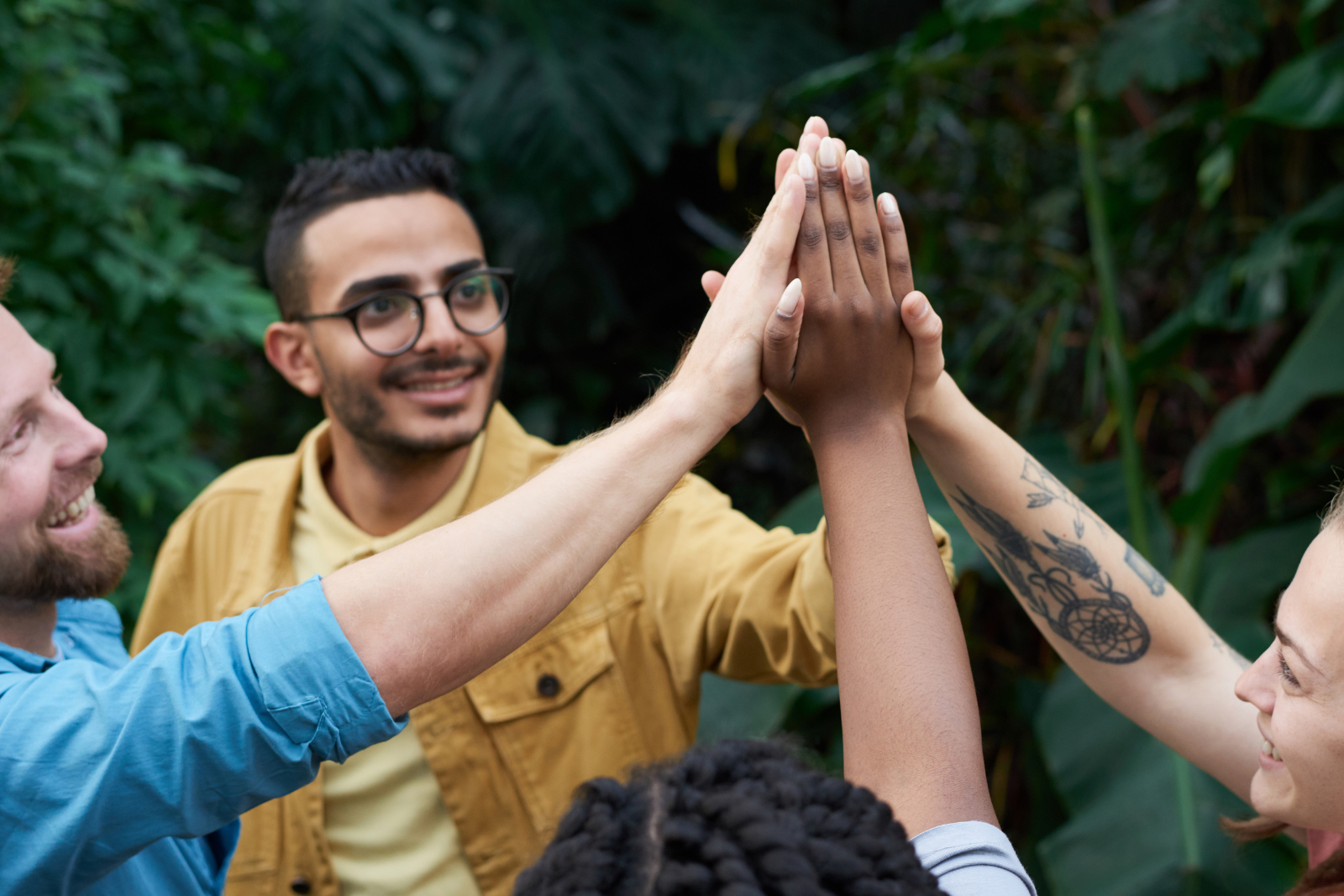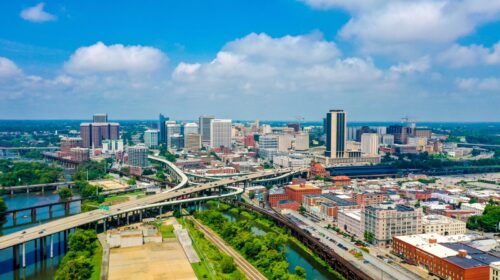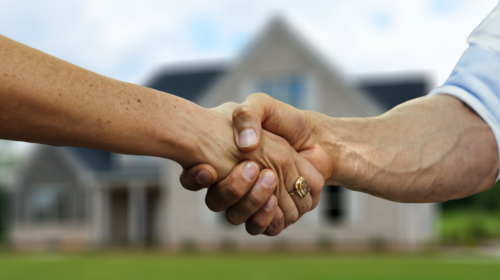If you have a mental health condition or substance use disorder in Virginia, you may be feeling isolated from your natural support systems. These disorders tend to isolate people from the very systems that could positively benefit their recovery journey.
Fortunately, in Virginia, many different support groups can provide you or your family members with the emotional and practical support you need to remain sober and celebrate your recovery.
#1 Recovery Unplugged
Located in Annandale, we are an addiction treatment rehab center providing post-treatment support to our clients in recovery programs.
Our robust alumni network annually meets at various parties, festivals, and events. We seek to encourage each other in our moments of happiness and vulnerability. Having a strong network of like-minded peers is crucial for long-term recovery success.
Beyond connecting to fellow alumni, our program is run by a national network of coordinators who will check in on you no matter how long it’s been since you graduated. The frequency of contact may change over time based on your risk level and time since treatment, but you’ll never lose contact with us. We’ll always be invested in your recovery.
Contact us today to learn more about our alumni network.
#2 Mental Health America of Virginia Warm Line
If you need help finding a support group, call the peer-run support line at Mental Health America of Virginia. Call 804-257-5591 if you need compassionate listening or a behavioral health support referral.
In contrast with a “hotline,” which is typically available 24/7 for emergencies, a “warmline” offers non-emergency support and may have specific operating hours. For the MHAV warm line, they receive calls Monday through Friday from 9 am to 5 pm.
While these operators are not licensed, they are living examples of wellness, which should encourage anybody to call in and talk about anything that isn’t a crisis. If you are experiencing a crisis, you should dial the 988 Suicide and Crisis Lifeline.
#3 NAMI (Personal and Family Support Groups)
NAMI stands for the “National Alliance on Mental Illness”. If you’re recovering from a mental health disorder, they have mental health support groups that meet in northern, central, and coastal Virginia. There are three kinds of NAMI support groups which meet in-person and virtually:
- Connection: Adults with a mental disorder
- Family: Adults with a loved one who has a mental disorder
- Specific: Adults who are in a specific community who have a mental disorder
No matter which of these groups you seek out, you’ll find their volunteers and staff are ready to listen to your story without judgment. They believe that mental illnesses are biologically based conditions. Mental illnesses aren’t indicative of weakness or poor character. Left untreated, they can significantly affect your quality of life.
Connect with a NAMI national support group today.
#4 Matrix Program
Run by the Alexandria, VA civil authorities, the Matrix Program is an intensive outpatient program for people with a substance use disorder. It consists of various co-ed support groups and some support groups for men or women.
It lasts six months and is free to anyone who wants to participate. Some groups that meet under the umbrella program are:
- Early Recovery Group
- Relapse Prevention Group
- Achieving Freedom
- Living in Balance
- Compassionate Recovery Practices
These groups teach participants the basic skills they need to sustain their recoveries. The groups generally meet once or twice weekly for 60-90 minutes per session. You’ll get information, support, and guidance from the facilitators.
#5 Alcoholics Anonymous

Alcoholics Anonymous (AA) was the original 12-step support group. Founded in 1938, millions upon millions of people have graduated from their support groups and claimed victory over their alcohol dependencies.
AA groups might be panned in pop culture as awkward places where you’re expected to divulge sensitive information about your addiction, but nothing could be further from the truth. AA meetings are completely confidential, and you aren’t required to speak unless desired.
Meetings will include reading group literature, discussions, and affirmations. To connect with a local support group, use this online directory of Virginia AA groups.
#6 Narcotics Anonymous
Narcotics Anonymous (NA) had a similar trajectory as AA. Founded in 1953, millions of people have utilized their support groups to recover from a substance-use dependency.
The 12 steps of NA are nearly identical to those of AA. The steps are intended to be completed sequentially and build on the success of the ones that came before it. While NA is a spiritual-not-religious organization, you don’t have to be spiritual to attend.
As long as you can respect the experiences of others, you will flourish in this environment. Regardless of their beliefs, you can learn valuable lessons from the experiences of others. Meetings will include reading group literature, discussions, and affirmations.
To connect with a local NA support group, use this online directory.
#7 SMART Recovery
Established in 1994, SMART (Self-management and Recovery Training) Recovery is an evidence-based recovery method that uses traditional CBT and REBT principles to help people stay motivated, cope with powerful urges, manage their thoughts & feelings, and live a well-balanced life.
They are very person-centered and believe everyone can manage their own behaviors while benefiting from mutual support in a group context. After all, there is great value in connecting with others and learning from their experiences.
SMART is the secular alternative to the spiritualized AA and NA groups. There are over 1500 groups that meet today, both locally and nationally. Several support groups meet locally in Virginia, both in-person and virtually.
#8 Celebrate Recovery
Formed in 1991, Celebrate Recovery (CR) is an explicitly Christian 12-step program that has helped millions of people claim victory over their addictions in the name of Jesus.
A recovering alcoholic, the founder of CR felt like he couldn’t talk about Jesus at AA but couldn’t talk about his addiction inside the church. He wanted to combine the safe, non-judgmental atmosphere of AA with the power of the gospel to change lives. CR was created to be a space inside churches where it’s safe to talk about your addictions.
Hosting churches will send members to facilitation training, and then these members will host the program at the church. There are dozens of CR groups that meet across the state of Virginia inside hosting churches. Connect with a local group today.
#9 Wounded Warrior Support Group
The Wounded Warrior Project (WWP) began as a bedside comfort service to wounded veterans returning home from Iraq and Afghanistan. It’s evolved into a mental health treatment and long-term rehabilitative care provider across the United States.
They provide mentoring services for caregivers and service members to empower injured veterans and their families to care for them. Returning to civilian life can be hard for veterans due to the loss of common camaraderie. WWP organizes local peer support groups in Virginia so veterans can have a new place to call home.
If you’re a veteran in Virginia who has been injured in some way through your service, use their group locator today to find a group near you.
#10 Eating Disorder Hope
Eating Disorder Hope (EDH) is a national organization that seeks to provide as much free, quality information as possible to people recovering from an eating disorder.
There are countless resources available to anyone struggling with an eating disorder. Contributors to the site include therapists, doctors, psychiatrists, and other leaders in the medical field. One such resource is a support group locator.
If you’re struggling with an eating disorder in Virginia, use this group locator to find a group that meets near you.
Where Can I Go For Alcohol or Drug Treatment In Virginia?
If you are struggling with alcohol or drug use, seek treatment immediately. Alcohol use disorder can shorten your lifespan by 24-28 years, while narcotics can shorten your lifespan by 14-15 years on average.[1][2]
You need professional, compassionate help to sustain a long-term recovery. One such group of professionals can be found at Recovery Unplugged. Our programs use evidence-based addiction treatment with innovative music-focused practices to get your mind, heart, body, and soul connected to your therapy.
We offer CBT, RBT, transcranial magnetic stimulation (TMS), and music-assisted therapy to give you the internal resources to find the motivation for change and live out your sobriety. Our community is warm, supportive, and, most importantly, healing and hopeful.

























